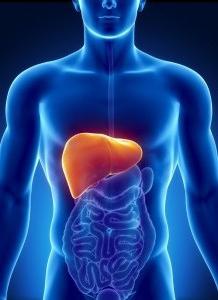Briefly on whether hepatitis C can be cured
General information about hepatitis
Hepatitis is a common name for a number of diseases,which affect the liver tissue. In everyday life, hepatitis is called "jaundice" by the characteristic feature of one of the symptoms of hepatitis. The jaundice of the skin, as well as the sclera in the eyeball, is caused by the ingestion of excessive amounts of bilirubin into the blood, which has not been processed in the liver because of its unhealthiness.
All the variety of forms known todayHepatitis fits into two main varieties: viral hepatitis, non-viral hepatitis. The cause of viral hepatitis is always viruses transmitted from person to person. To date, there are already known about seven types of viruses that cause viral hepatitis. They are called hepatotropic, since these viruses can exist only in liver tissues.
A special place in a number of viral hepatitis ishepatitis C. This disease occurs in 7 cases of chronic hepatitis out of 10, registered in the world, and in 6 cases out of 10 recorded cases of liver cancer. The problem of treating hepatitis C today for the damage they cause to the health of the population far exceeds the problem of not only hepatitis B, but also AIDS. So, is it possible to cure hepatitis C and how to do it with the most efficiency?
The human liver is one of the important organs,performing a number of different functions. For example, neutralization and removal of foreign substances, metabolic products from the body, participation in hematopoietic processes and many others. Therefore, all types of viral hepatitis represent a danger to the normal life of the human body as a whole. At the same time, some are more dangerous during the acute course, others due to complications that occur in chronic course, and also in connection with the likelihood of developing cirrhosis of the liver.
Treat any kind of hepatitis. However, the question of how to cure hepatitis C is of particular importance in connection with the high probability of the transition of this type of disease into a chronic form. This probability is great due to two distinctive features of this type of hepatitis. First, this type of hepatitis is called a "gentle killer" because it develops almost without any symptoms characteristic of hepatitis. Secondly, the immune system of a person infected with hepatitis C often does not have time to produce the necessary antibodies due to the high level of genetic variability of the virus that causes hepatitis C.
Hepatitis C. Symptoms, treatment
Symptoms of hepatitis C are similar to manifestations,for example, influenza, that is, general malaise, sudden fever, headache. These symptoms are also characteristic of other types of viral hepatitis such as hepatitis A or hepatitis B. Because viral hepatitis causes liver dysfunction, they are also characterized by such manifestations as loss of appetite, nausea, a feeling of heaviness in the abdomen on the right, icterus. The defeat of the liver also manifests itself in the form of a change in the color of urine and feces: urine - darkens, and feces - lightens.
Fatal consequences of the same chronic processesin hepatitis C, there may be both irreversible changes in the liver leading to cirrhosis and ascites, as well as hepatic encephalopathy resulting from damage to the brain cells. Can hepatitis C be cured at an early stage, preventing the transition to chronic form?
The most important thing in the treatment of hepatitis C is hisearly diagnosis. This task is not easy. Usually, the signs of hepatitis are determined with the help of a blood test for the presence of this virus, among others in the course of medical examination of the population. Especially this method of diagnosis is important for young people and the so-called "risk groups", in which the extent of the spread of the hepatitis C virus is greatest.
Since the source of infection in hepatitis Cis the blood of an infected person, then the risk group includes, for example, blood donors, drug users who inject intravenously psychotropic substances with a single syringe to several people at once. You can also get infected with hepatitis C virus, for example, by doing a manicure or tattoo in non-specialized private rooms, the owners of which often do not even have a license to perform this type of activity.
In the case of detection of acute forms of hepatitis Ctreatment is possible, but it is mandatory provided that the doctor's prescriptions are strictly followed for a sufficiently long period of time. The most effective method of treatment of hepatitis C is today a combination therapy that combines injections of interferon and the taking of tablets of a number of nucleoside preparations (ribavirin or domestic drug - phosphoglobin). A complete cure for hepatitis depends on the condition of the patient's body, as well as on his age, and usually comes not earlier than after a six-month course.
Can hepatitis C be cured if it passesin a chronic form? The answer is positive. However, in this case, this possibility is not as absolute as in the acute form of the disease. When using combined treatment regimens, the effectiveness of antiviral therapy is 80%. At the same time, these schemes are constantly improving, thanks to the appearance of new drugs.
Summarizing all of the above, the question oftom, whether it is possible to cure hepatitis C, the answer is unambiguous - you can. However, it is worth remembering the need for treatment strictly under the supervision of a specialist.








